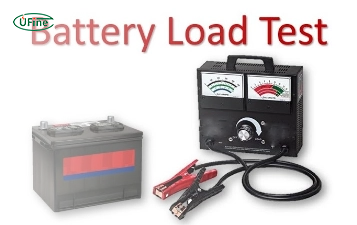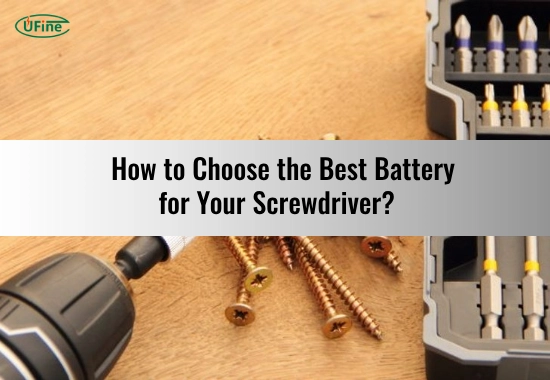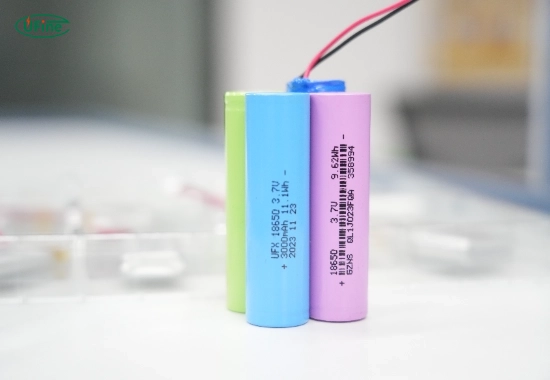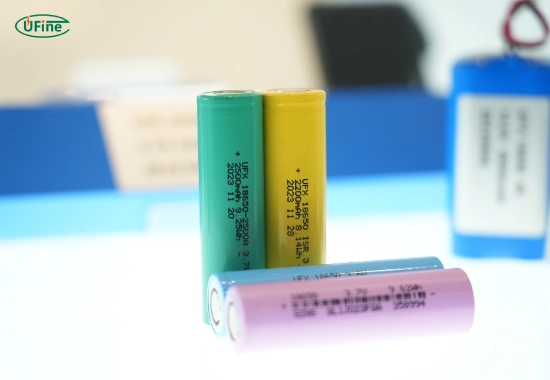
- Part 1. What are the different types of batteries available for screwdrivers?
- Part 2. What voltage do you need for your screwdriver?
- Part 3. How long should battery life last?
- Part 4. How do you determine compatibility with your screwdriver?
- Part 5. What features should you look for in a battery?
- Part 6. How much should you expect to spend on a quality battery?
- Part 7. Can you use third-party batteries?
- Part 8. How do you maintain your screwdriver battery?
- Part 9. FAQs
Choosing the right battery for your screwdriver ensures optimal performance and efficiency. A suitable battery powers your tool effectively and enhances your overall experience while working on various projects. With many options available in the market, understanding the different types of batteries, their compatibility with specific screwdrivers, and other essential factors can help you make an informed decision. This comprehensive guide will delve into everything you need to know about selecting the best battery for your screwdriver.
Part 1. What are the different types of batteries available for screwdrivers?
When selecting a battery for your screwdriver, it’s essential to understand the different types available and their suitability for various screwdriver models. Each type has its advantages and disadvantages:
Nickel-Cadmium (NiCd) Batteries
Nickel-cadmium batteries have been a staple in power tools for decades. They are known for their durability and reliability, making them ideal for heavy-duty screwdrivers in construction or industrial applications. However, they can suffer from memory effects, which may reduce their capacity if not fully discharged before recharging.
Nickel-Metal Hydride (NiMH) Batteries
Nickel-metal hydride batteries are a more modern alternative to NiCd batteries. They offer a higher capacity and are less prone to memory effect, making them suitable for mid-range screwdrivers in DIY projects and home repairs. While they may not perform as well in extreme temperatures, they are generally more environmentally friendly.
Lithium-Ion (Li-ion) Batteries
Lithium-ion batteries have gained immense popularity due to their lightweight design and high energy density. They provide consistent power throughout their discharge cycle, making them perfect for light-duty and heavy-duty screwdrivers. Their lack of memory effect also means they maintain their capacity over time, making them an excellent choice for frequent users.
Lithium Polymer (LiPo) Batteries
Lithium Polymer batteries are similar to Li-ion batteries but offer even greater flexibility in design and form factor. They are lightweight and can deliver high discharge rates, making them ideal for high-performance screwdrivers in specialized applications like racing or advanced DIY projects. However, due to their sensitivity, they require careful handling and charging.
Part 2. What voltage do you need for your screwdriver?
The voltage of a battery is crucial as it determines the power output of your screwdriver. Most screwdrivers operate on voltages ranging from 3.6V to 18V.
Low Voltage (3.6V – 7.2V)
Low-voltage screwdrivers are typically used for light-duty tasks such as assembling furniture or small electronics. They provide sufficient power for basic tasks but may struggle with more demanding jobs.
Medium Voltage (9V – 12V)
Medium-voltage screwdrivers offer a balance between power and portability. They are suitable for various tasks, including DIY projects and minor repairs around the house.
High Voltage (14V – 18V)
High-voltage screwdrivers are designed for heavy-duty applications such as construction or professional use. They deliver maximum torque and speed, making them ideal for driving large screws or working with rigid materials.
Part 3. How long should battery life last?
Battery life is another critical factor when choosing a battery for your screwdriver. It is measured in Amp-hours (Ah) or mAh, indicating how much energy the battery can store.
Short Battery Life
Batteries with lower mAh ratings may only last for short tasks before needing a recharge, which can be frustrating during extended projects.
Long Battery Life
Higher mAh ratings indicate longer usage times between charges, allowing you to work more efficiently without interruptions.
Part 4. How do you determine compatibility with your screwdriver?
Before purchasing a battery, ensuring compatibility with your specific screwdriver model is essential.
Check Manufacturer Specifications
Always refer to the manufacturer’s specifications for your screwdriver model to determine which batteries are compatible.
Look for Brand-Specific Batteries
Many brands produce batteries designed explicitly for their tools, ensuring optimal performance and safety.
Part 5. What features should you look for in a battery?
When selecting a battery, consider these features to enhance your experience:
Built-in Protection Circuits
Batteries with built-in protection circuits help prevent overcharging, overheating, and short-circuiting, extending their lifespan.
Fast Charging Capability
Fast charging capabilities allow you to recharge your battery quickly, minimizing downtime during projects.
Indicator Lights
Batteries with indicator lights provide visual feedback on charge status, helping you monitor power levels easily.
Part 6. How much should you expect to spend on a quality battery?
The cost of batteries can vary widely based on type, capacity, and brand.
Budget Options
If you’re looking for budget-friendly options, NiCd or lower-capacity NiMH batteries may be suitable but could compromise performance in demanding applications.
Premium Options
Investing in high-quality Lithium-Ion or Lithium Polymer batteries may require a more significant upfront cost. Still, it will likely pay off in terms of performance and longevity.
Part 7. Can you use third-party batteries?
While third-party batteries can be tempting due to their lower prices, they come with risks:
Compatibility Issues
Third-party batteries may not fit perfectly or work as intended with your screwdriver model.
Warranty Concerns
Using third-party batteries could void any warranty on your tool if they cause damage or performance issues.
Part 8. How do you maintain your screwdriver battery?
Proper maintenance can extend the lifespan of your screwdriver’s battery:
Regular Charging
Charge your battery regularly, even if you’re not using it frequently; this helps maintain its capacity over time.
Store Properly
Store your batteries in a cool, dry place away from direct sunlight or extreme temperatures to prevent damage.
Part 9. FAQs
-
What type of battery lasts longer?
Lithium-Ion batteries generally last longer than NiCd or NiMH due to their higher energy density and lack of memory effect. -
Can I use my screwdriver while charging?
Most modern screwdrivers do not allow use while charging; check your user manual for specific guidelines regarding this feature. -
How often should I replace my screwdriver battery?
Battery lifespan varies by usage; however, it may be time for a replacement if you consistently notice reduced performance or longer charging times. -
Are higher voltage batteries always better?
Not necessarily; higher voltage provides more power, but it may not be suitable for lighter tasks where lower voltage options suffice. -
What should I do if my battery overheats during charging?
If your battery overheats during charging, immediately disconnect it from the charger and allow it to cool down before further use or inspection.
Related Tags:
More Articles

Battery Load Test: A Comprehensive Guide
Step-by-step battery load test guide for car, solar & industrial use. Learn how to load test a battery, interpret voltage charts, and avoid common mistakes.
The Comprehensive Guide to Battery Balancing and Battery Balancer
Discover how battery balancers improve lithium battery performance, lifespan, and safety. Learn types, functions, and tips to choose the right balancer.
What Is the Best Voltage for a Chainsaw Battery?
Compare 12V-80V chainsaw batteries for light pruning, medium firewood, and professional cutting. See best battery chainsaw with runtime charts and safety tips.
Lithium VS. Alkaline Batteries: A Comprehensive Comparison
Lithium batteries last 3–7× longer than alkaline and perform better in cold weather. Compare lifespan, cost, safety, and best uses to choose the right battery.
Comparing Lithium-Sulfur and Lithium-Ion Batteries: Which is Right for You?
Compare lithium-sulfur (Li-S) and lithium-ion batteries on energy, lifespan, cost, safety, and applications. Best choice for drones, EVs, and electronics.





